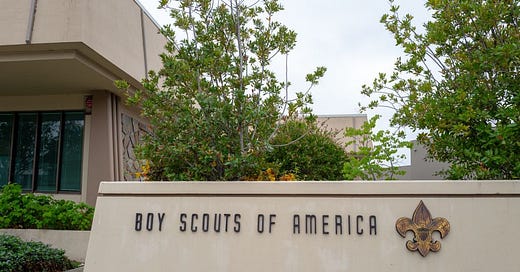Despite a $2.46 Billion Settlement, Many Boy Scout Abuse Victims Won’t See Justice
State laws severely limit how much of the landmark settlement survivors will actually receive
This week’s newsletter is a story about sexual assault, the Boy Scouts, and justice. It’s also about how the statute of limitations laws in childhood sexual assault cases hurt victims and help abusers hide. So, please read with care. While this is a hard story to read, it’s worth noting that so many of the men I’ve talked to over the years about abuse c…



